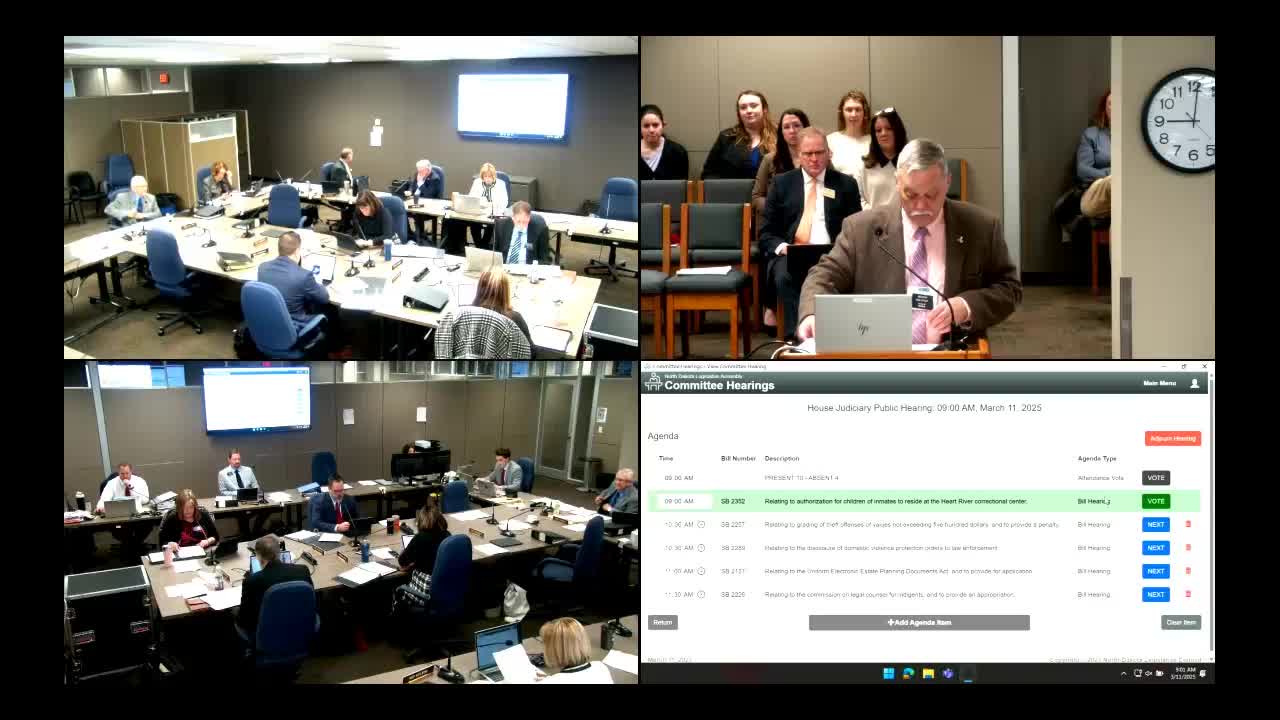Article not found
This article is no longer available. But don't worry—we've gathered other articles that discuss the same topic.
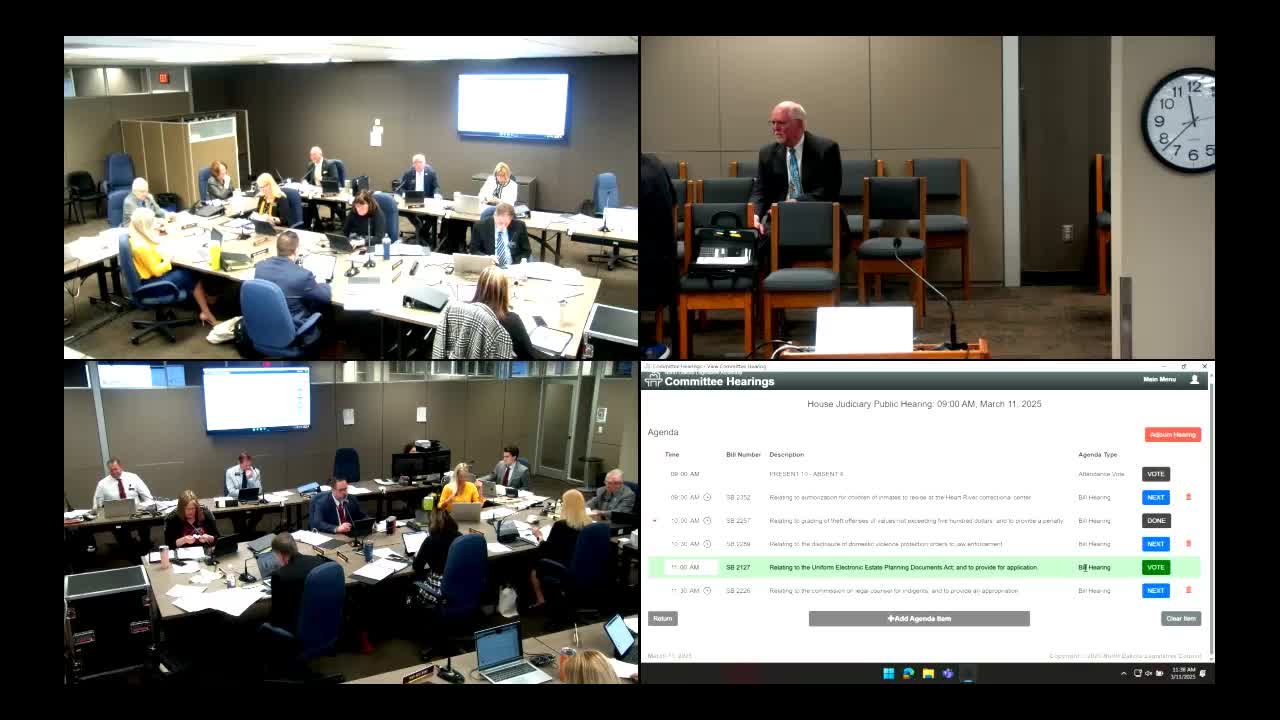
Proposal would presume indigence for people jailed at initial appearance, increasing counsel access
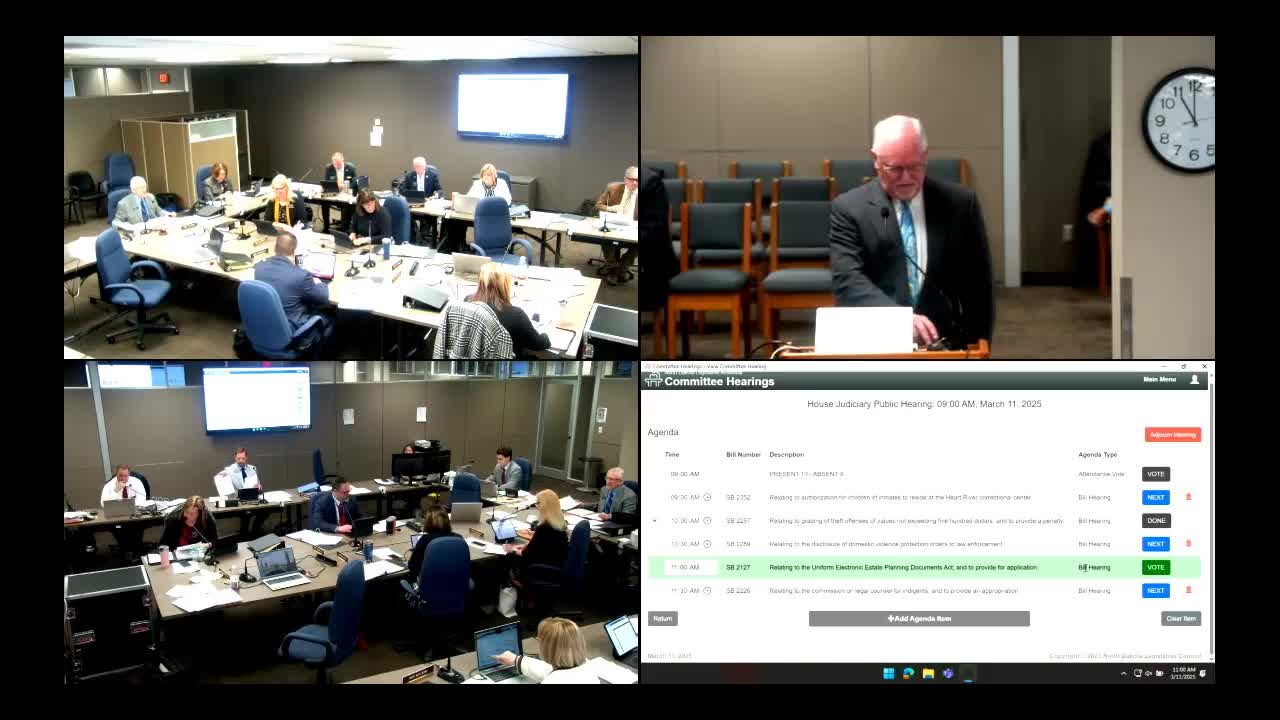
Uniform act proposed to allow electronic trusts, powers of attorney and other non‑wills estate documents
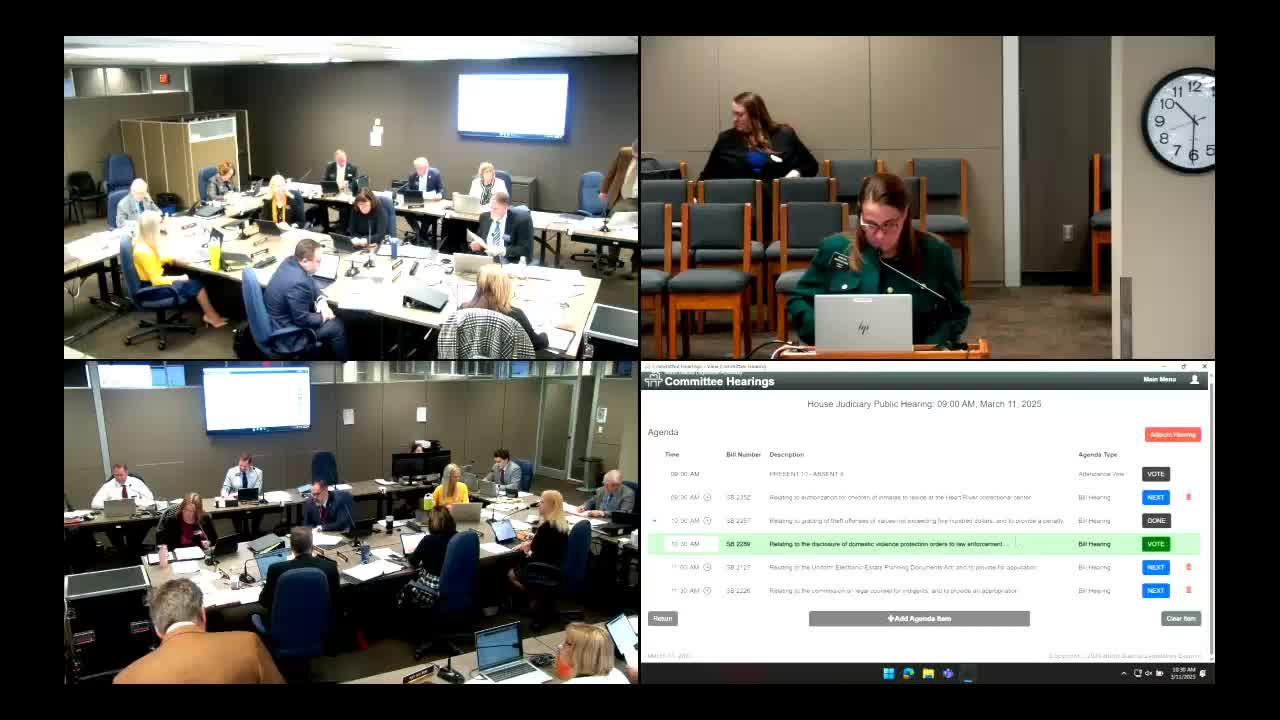
Sponsor asks for help giving law enforcement timely access to protection orders in computer systems
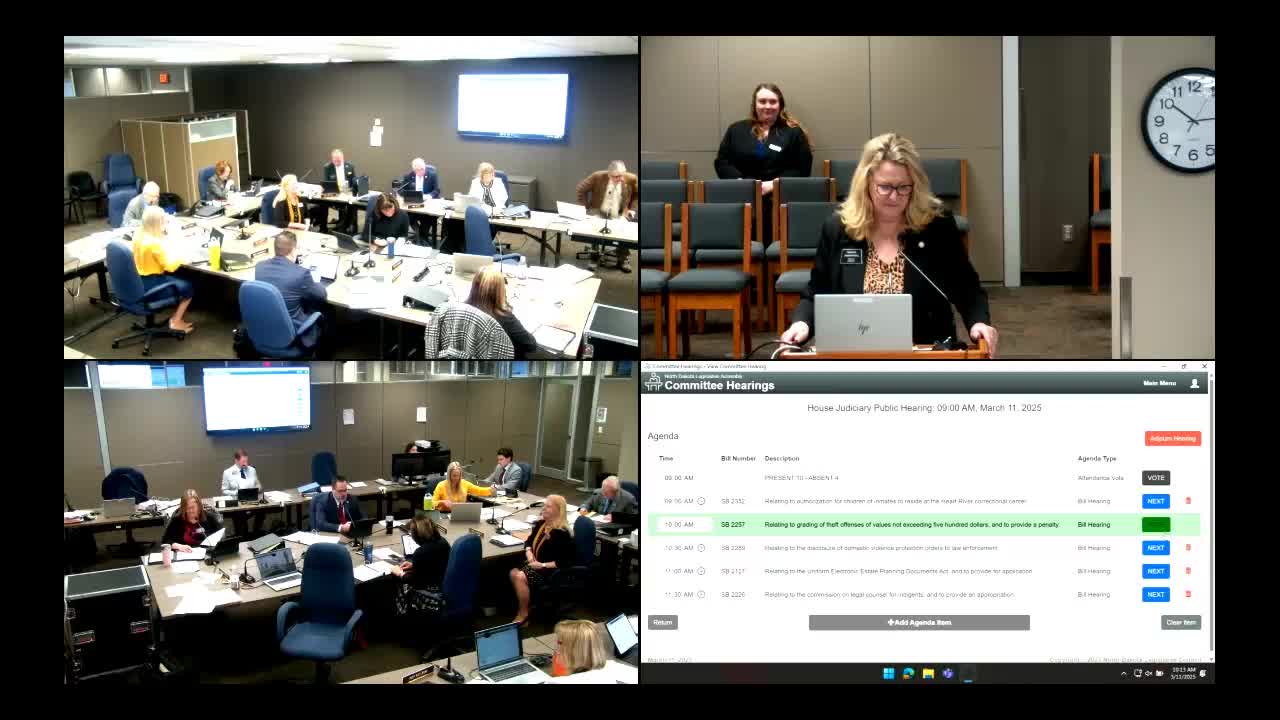
Committee hears technical fix to ensure municipal shoplifting convictions count toward felony enhancements
